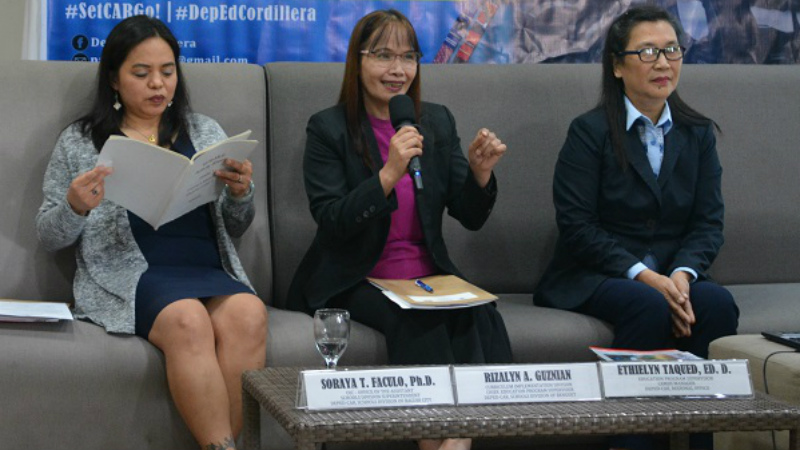BAGUIO CITY – Culture-based educators in the different parts of the region were able to produce some 7,678 contextual learning resources which are now being used as materials for the mother tongue-based education under the government’s K-12 basic education curriculum.
Ethylien Taqued, Education Supervisor of the Cordillera office of the Department of Education, said that the new curriculum allows educators to be flexible and gives them the leeway to do what they think is best for their students and gave them the autonomy and subsequent responsibility to make their curriculum or subjects relevant to the students, relevant to the lives of the learners.
Of the produced contextual learning resources, 178 materials had already been submitted to the national office for quality check, 900 materials are in the regional level while the rest of the produced learning resources are either in the division or school levels.
“Contextualization is when we help students gain a deeper understanding of a subject matter by relating the material to meaningful situations that students encounter in real life. If we are able to make our students realize that there is science everywhere, that science works in our local communities, then our students will be able to appreciate the universal application of science,”Taqued stressed.
She explained that the availability of the contextual learning resources will be able to aid the students in finding solutions to problems plaguing the different localities considering that contextualization entails intentinal efforts to extend learning beyond the classroom into relevant context in the real world, and it also entails bringing realities of those extra academic cntext into the classroom.
According to her, the localized or contextualized curriculum was based on the local needs and relevant for the learners where there is flexibility and creativity in the lessons.
Taqued pointed out that linking school culture with home culture and incorporating culturally relevant teaching skills are critically important for the Filipino learners to be successful .
The education official asserted that the produced learning resources passed stringent quality standards in the school, division, regional and national levels prior to their being used as materials to aid educators in the implementation of the mother tongue-based education which is from kindergarten up to Grade III only.
Under the education department’s policies on learning resources, materials produced by the agency are distributed free of charge to the division offices for school use and not for sale.
To supplement materials produced at the national level, the development of local materials such as contextualized ones has been strongly encouraged but the same undergo the learning resources processes and standards.
However, the agency’s Bureau of learning Resources does not have the control over private publishers that sell textbooks and supplementary learning resources to the filed which did not undergo the quality assurance process and that private publishers publish such learning resources at their own volition without consultation unless submitted to the agency as prototype in response to publish call.
By HENT
MOTHER TOUNGUE-BASED EDUCATION – Senior regional, provincial and city education officials discuss the advancements made by the Cordillera in the implementation of the mother tongue-based education. In photo from left to right are Assistant City Schools Superintendent Soraya Faculo, Chief-Curriculum and Instruction Division of Benguet Rizalyn Guznian and Education Supervisor of the regional education department Ethylien Taqued. ROSALIA T. SEE













